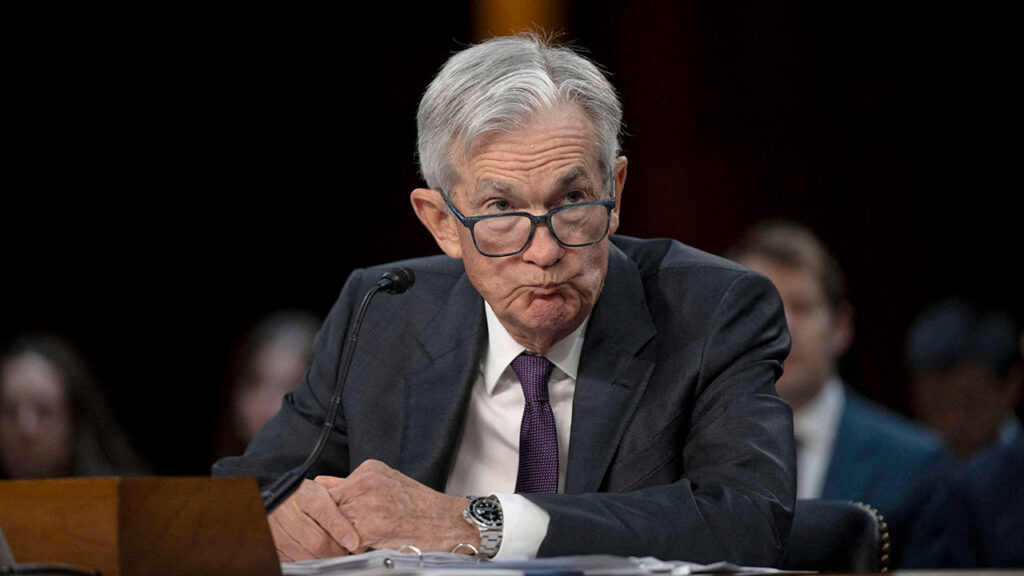Former President Donald Trump has frequently displayed a penchant for name-calling, a habit that tends to reveal his unfiltered personality. This characteristic of his generally manifests itself in comments that can be more amusing than impactful, often steering the discourse towards a less serious note. However, when Trump recently referred to Jerome Powell, the chair of the Federal Reserve, as “Mr. Too Late” and characterized him as “a major loser,” it raised serious alarms far beyond typical juvenile insults. Such remarks symbolize a looming threat to the integrity and independence of the central bank, accentuating existing concerns surrounding the stability of the American economy.
The implications of Trump’s comments were felt almost immediately when financial markets reopened on April 21st, following a long Easter weekend. Investors responded markedly, with American stocks, Treasury bonds, and the U.S. dollar witnessing a substantial downturn. This reaction serves as yet another indicator of the “sell America” sentiment currently pervasive in financial circles. Traders’ decisions to offload these assets may stem from apprehension about future decisions made by the Federal Reserve in the face of potential political pressure stemming from Trump’s provocative comments.
Moreover, the remarks are emblematic of a broader trend where political figures seem to disregard the economic consequences of their rhetoric, potentially inviting volatility into financial markets. The role of the Federal Reserve, as an independent entity tasked with managing monetary policy to ensure economic stability, becomes increasingly complicated under such pressures. Trump’s attempts to undermine Powell’s credibility not only jeopardize the perception of the central bank but also risk interfering with its ability to make necessary decisions devoid of political influence.
It’s crucial to understand the dynamics at play. The Federal Reserve, under Powell’s leadership, is charged with managing inflation and ensuring full employment while maintaining a stable financial system. Engaging in political quarrels, particularly with a former president who wields considerable influence over public opinion, is a substantial threat to the Fed’s mandate. Powell’s tenure has already seen its share of challenges, particularly in navigating economic recovery post-COVID-19 and combating inflation that surged to multi-decade highs. Trump’s remarks may influence public sentiment, leading to increased pressure on Powell to alter course in his policy decisions, which could adversely affect overall economic health.
The timing of Trump’s remarks also coincides with critical moments in American fiscal policy. As inflation hesitates to ease and the specter of a recession looms, Trump’s comments might serve to embolden critics of the Fed, who argue that measures taken to curb inflation are either insufficient or misguided. The risk posed by this kind of disruptive dialogue can lead to a lack of confidence in the Fed’s decisions, ultimately fostering a more volatile economic environment that could spiral out of control if left unchecked.
While engaging in criticism is a traditional hallmark of political discourse, Trump’s approach seems particularly worrisome due to its implications for the Federal Reserve’s autonomy and the American fiscal landscape. History has demonstrated that economies thrive when fiscal policy decisions are driven by data and expertise free from political overreach. Trump’s incendiary language underscores the need for a careful examination of the boundaries between politics and economic stewardship.
In conclusion, Trump’s recent comments targeting Jerome Powell are more than simple jabs but represent a troubling signal regarding the relationship between politics and economic management in the United States. The ensuing market reactions highlight a deep-seated wariness among investors, further compounded by the reality of an already precarious economic landscape. As the nation moves forward, it is crucial for both governmental and financial institutions to maintain their independence and fortitude in the face of politicized rhetoric, ensuring stability in an increasingly unpredictable global economy.









